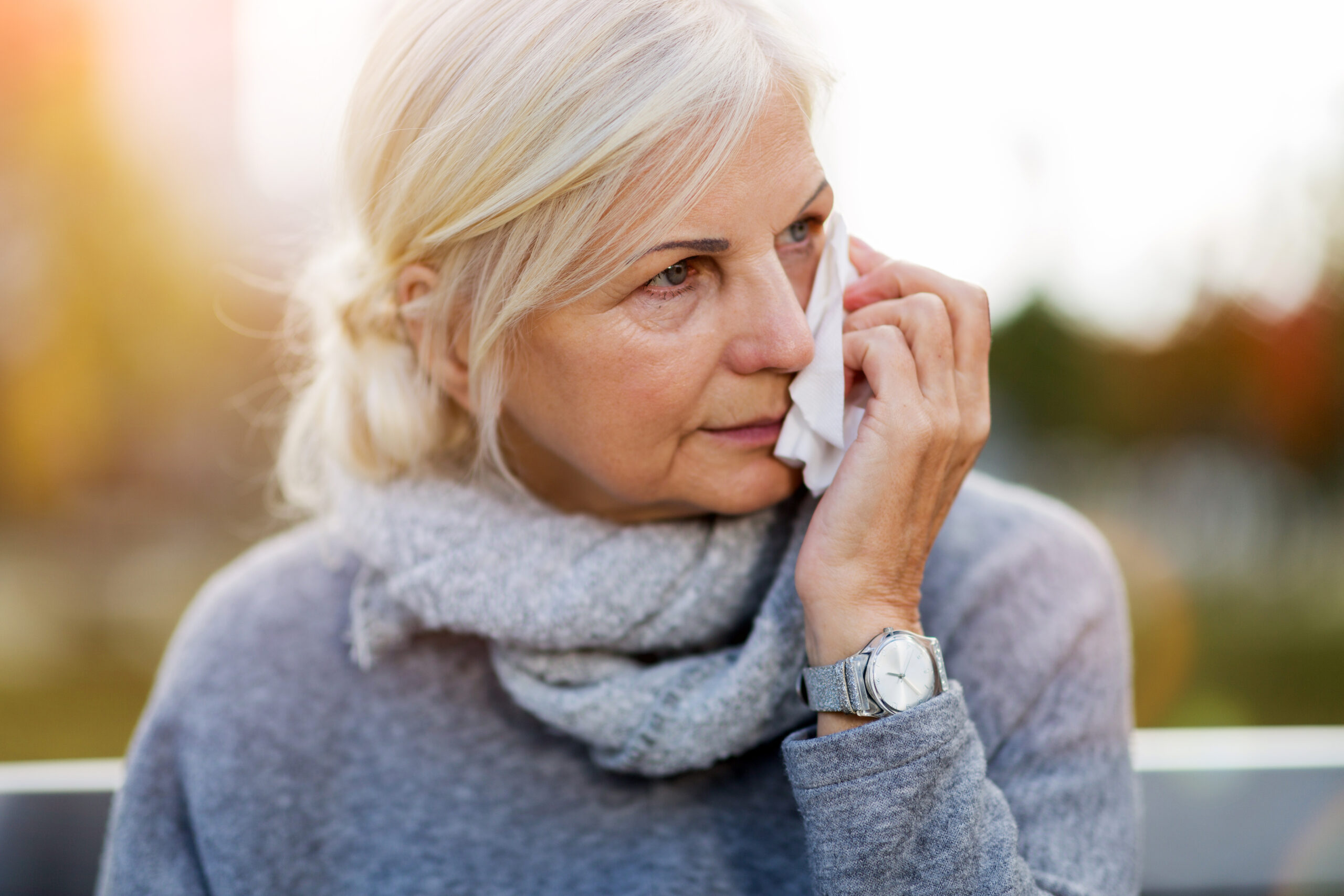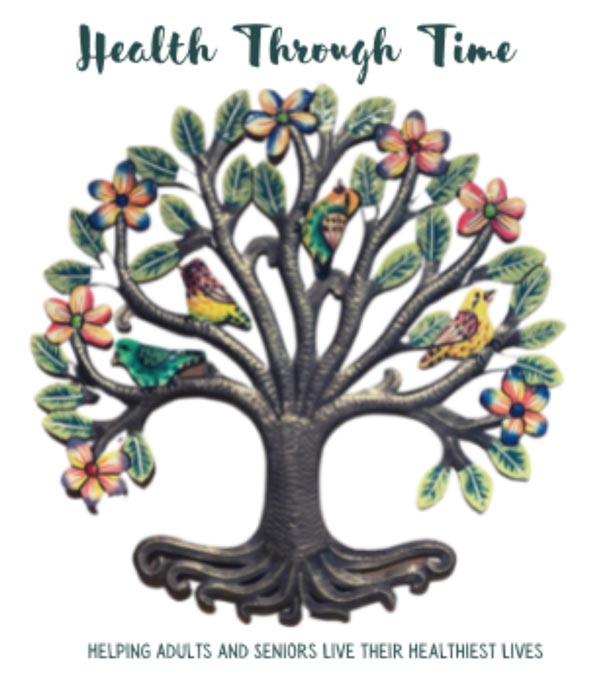Grieving and Your Health
Posted by mjamieson on May 27, 2024 in Health Blog | Comments Off on Grieving and Your Health
As we reach our sixties, we begin to experience more losses. We lose parents, spouses, siblings, friends, and pets. We may experience life altering changes to our health or the health of our loved ones. Stamina may not be what it once was, we may lose functional abilities such as vision, or changes in ambulatory abilities. Additionally, we are more at risk of losing very important social connections. These experiences tend to be cumulative, making each loss that much more difficult. Loss and grief are a reality as we age.
Grief is a universal condition; though how we experience grief is a unique and individual experience. Unfortunately, we do not choose these feelings that descend on us. Managing the intense longing and yearning for “what was” is extremely difficult. Taking positive steps to protect our health during the grief experience can feel impossible.
My own recent loss of a loved one has forced me to take this painful grief journey. On an intellectual basis, I understand that what I’m going through is normal. However, I was not prepared for the intensity of emotions and subsequent impact on my physical health. After being sick for the second time in one month I got my wake-up call. I rarely get sick, so I knew my immune system was taking a hit from gut wrenching emotions that I have no control over.
Can Anything Be Done to Protect our Health While Grieving?
This experience raised many questions for me. What are the actual physical changes caused by grieving? What can be done to reduce the deleterious effects of grieving? Research suggests that the physical impacts are sustained, so does any amount of intervention even help? And most important, how in the heck can you move forward when it takes every bit of effort you can summon to get through your day?
Grief Impacts our Brain and our Biology
Individuals over age 60 are at increased risk of health impacts and even death following the loss of a loved one. The risk of a heart attack or stroke is highest in the first 24 hours following a death. This is two times the normal risk of a cardiovascular event. Elevated risk continues for 30 days following the death of a spouse.
Our brains respond to grief as a fight or flight response. This is an evolutionary response to the loss of a spouse which posed a genuine threat in prehistoric times. The flight or fight response elevates cortisol, causes T-Lymphocyte proliferation, platelet aggregation, and increased neutrophils. In plain speak, grief causes sustained inflammatory responses in the body and disruption to the immune system.
During a grief response, cortisol remains elevated for a sustained period. Our t-cells increase reducing our immune response. Being in a sustained state of increased inflammation increases atherosclerosis. Our platelets aggregate increasing the risk of blood clots. Heart rate and blood pressure may remain elevated and is exacerbated by poor sleep. Poor sleep is extremely common during bereavement.
Emotional Impacts of Grief
Anxiety or depression may arise or worsen increasing the impact of physical implications. Grief often leads to increased engagement in unhealthy behaviors such as increased alcohol consumption, smoking, eating “comfort foods” which are generally lacking in nutritional value.
Men are at slightly higher risk according to studies as they are more likely to increase alcohol intake. When a spouse dies, the risk of mortality is increased 40% in the first 24 hours and remains increased for up to six months in uncomplicated grief.
Protecting Our Health
So how do we protect ourselves from these risks, particularly when taking positive steps may seem impossible in the first few months? Lifestyle, exercise, attitude, and nutrition can help but how do we find the energy to take the first step when grief is overwhelming?
Seek Social Support
First, reach out to your social support network. Research has shown that social support and bereavement groups do have a positive impact towards mitigating the physical stress of grieving. Seeking social support may be the most positive step to mitigate the negative impact of grief on your physical health.
When friends reach out, say yes! It may be difficult to engage, however, once you take that first step you will find the support of friends and family provides respite and encouragement. It is ok to say no when you really need some alone time but try to meet with friends at least once a week.
You may find that your friends are uncomfortable with your feelings of grief. If this is the case seek a bereavement support group. Spending time with others who are your sharing a similar experience can be very healing. In a bereavement group setting It is easier to speak freely about your loss without feeling that you are imposing your difficult emotions on friends or family members. Bereavement support has been shown to decrease our body’s inflammatory response as soon as five weeks after a significant loss.
Choose Nutritious Foods
After a few weeks of eating unhealthy foods in hopes of feeling better, your body will let you know this behavior isn’t working. Try to incorporate healthy lean proteins, healthy fats, fruits, and vegetables into your diet.
Most important, do not berate yourself for lapses. You are going through a very difficult experience. Allow yourself some of those comfort food items while also incorporating healthier choices. Know that this will become easier with time.
Take Steps to Improve Sleep
Sleep disruption increases heart rate and blood pressure. Cortisol levels remain elevated, making undisturbed sleep elusive. Poor sleep is strongly correlated with an increased risk of blood clots.
Undisturbed sleep is a significant factor in boosting immunity and reducing inflammation.
As difficult as it can be, try to maintain regular sleep times. Additionally, research indicates that those who engage in spiritual practices such as prayer or meditation have greater ease improving the quality of their sleep.
Allow Difficult Emotions
Allowing emotions can be extremely difficult. Unfortunately, there is no way to circumvent grief. Avoiding feelings of grief may manifest in poor sleep, impaired immune function, and increase the likelihood that grief will negatively impact your health.
It is tempting to avoid feeling the pain by distracting yourself. Distraction is an effective coping mechanism to get through a workday, or other tasks you need to attend to. However, you need to allow time to feel. Numbing yourself with alcohol, or mindless hours of Netflix binging to avoid the intensity of grief only prolongs the experience. When grief is overwhelming, journal your feelings, or talk with a trusted friend. Share stories about your loved one.
Many describe grief as coming in waves. These intense feelings may come up when you least expect it. Be assured and comforted in the knowledge that the intensity of longing and yearning does recede over time.
Exercise
Get some exercise. You may not be up for your normal five-mile hike but take a short walk and know that this is enough for now. Yoga, tai chi, qigong are gentle, helpful forms of movement that reduce the stress response and have been demonstrated to boost immunity.
Enlisting a walk buddy may help to get you out on those difficult days when you feel you literally cannot take one step. Again, social support provided by your walk buddy may be the most important step you take to push through the hard days.
Providing Support to Someone Who is Grieving
If someone you know is grieving, reach out. You don’t need to have any special words to say. A simple “I’m sorry” says enough. Avoid comments such as “they are in a better place” or “at least they were doing something they loved.” As much as these words come from a place of love and caring, these statements are just not helpful. Just be present.
Offer help and remember that most people are not comfortable asking for help. The old tradition of bringing food is still a wonderful gesture. During the initial acute phase of grief, individuals often do not have the emotional or physical stamina to cook a meal, let alone get out to the grocery store.
Seek Counseling if your Grief is not Resolving
No one person’s grief is the same as another’s. The depth and length of bereavement varies for everyone. According to the American Psychological Association uncomplicated grief may last from as little as six months to as long as two years. If you or someone you know is experiencing complicated grief, or the loss of a child it is recommended to seek counseling and specialized support. Prolonged grief can contribute to illness such as cancer, and a higher risk of death.
There is Relief…It Does Take Time
Acute grieving, while causing physiologic changes does resolve. We will always miss and remember our loved ones, but after time we do find a way to regain joy for life.
Speaking from my recent experience I know to the core that taking proactive steps is not easy. I have gained a whole new understanding and compassion for those walking the journey. I find hope and comfort in the knowledge that millions of people throughout history have walked through this deepest pain of loss and survived.
If you do nothing else, give yourself a break and take baby steps. Even in grief, baby steps have tremendous power to enable us to come out of the grief experience with our health and joy for life intact.
Disclaimer: Health Through Time does not diagnose, treat, or offer advice. This information is provided solely as education so that you may partner with your physician or mental health professional to devise the best plan to meet your individual needs.
Sources
Buckley T, Sunari D, Marshall A, Bartrop R, McKinley S, Tofler G. Physiological correlates of bereavement and the impact of bereavement interventions. Dialogues Clin Neurosci. 2012 Jun;14(2):129-39. doi: 10.31887/DCNS.2012.14.2/tbuckley. PMID: 22754285; PMCID: PMC3384441. Retrieved from: https://www.ncbi.nlm.nih.gov/pmc/articles/PMC3384441/
Bui E, Chad-Friedman E, Wieman S, Grasfield RH, Rolfe A, Dong M, Park ER, Denninger JW. Patient and Provider Perspectives on a Mind-Body Program for Grieving Older Adults. Am J Hosp Palliat Care. 2018 Jun;35(6):858-865. doi: 10.1177/1049909117743956. Epub 2017 Nov 26. PMID: 29172636.
Cleveland Clinic (n.d.) Grief. Retrieved from: https://my.clevelandclinic.org/health/diseases/24787-grief
Harvard Health (February 15 , 2021) How to overcome griefs’ heath-damaging effects (February 15, 2021) retrieved from: https://www.health.harvard.edu/mind-and-mood/how-to-overcome-griefs-health-damaging-effects
Kandemani, M. (February 21, 2024) How does grief affect your body. Retrieved from:
https://www.uclahealth.org/news/article/how-does-grief-affect-your-body
Merschel, M. (March 10, 2021) How grief rewires the brain and can affect your health-and what to do about it. Retrieved from: https://www.heart.org/en/news/2021/03/10/how-grief-rewires-the-brain-and-can-affect-health-and-what-to-do-about-it
